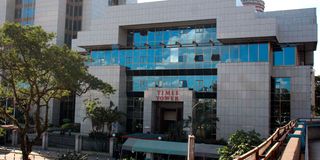KRA to start collecting rental property data

The Kenya Revenue Authority (KRA) will start collecting data on rental properties in Nairobi County and its environs in efforts to boost revenues.
The Kenya Revenue Authority (KRA) will start collecting data on rental properties in Nairobi County and its environs in efforts to boost revenues.
This is part of the KRA’s tax base expansion programme, it said.
The new development follows the KRA’s bid to enhance its collection efforts by, among other things, deploying more than 500 officers to gather intelligence on tax evaders and utilising data to track non-payment of taxes on income by businesses.
A notice from the agency said the work will start on Wednesday, October 19, 2022.
“KRA officers … will identify themselves using … staff identification cards which can be verified by dialing the USSD code *572#, through the KRA M-service App or using KRA Thibitisha. Members of the public are requested to cooperate and provide the information required during the exercise,” the agency said.
The KRA exceeded its revenue collection target by Sh148.9 billion in the fiscal year to June 2022, boosted by higher collections from corporations, payrolls and value-added taxes.
The agency raised Sh2.031 trillion against the original target of Sh1.882 trillion, which was revised upwards twice during the year to Sh1.91 trillion and Sh1.98 trillion. In 2020/2021, revenues stood at Sh1.669 trillion.
Targets adjusted downwards
This was the first time the taxman surpassed its original target in 14 years, with previous targets adjusted downwards.
Kenya’s construction and real estate sector is one of the fastest-growing, with a projected growth rate of more than 20 percent by 2021.
The sector is experiencing the highest demand due to a rapidly growing population and an expanding middle class.
Kenya’s housing market is primarily rental and its real estate market has grown exponentially, as evidenced by its contribution to the GDP, which has increased from 10.5 percent in 2000 to 12.6 percent in 2012, 13.8 percent in 2016, and 20 percent in 2021.
Rental tax is charged on income received from leasing property for residential or commercial use.
The tax is payable by residents (individuals or companies) on rental income earned for the use or occupation of a property where the income is between Sh288,000 and Sh15 million per annum.
For rental income below Sh288,000 or above Sh15 million per year, landlords are required to file annual income tax returns and declare this income alongside that from other sources.
Residential rental income is charged at a flat rate of 10 percent on gross rent received per month and is payable when it is received and the returns filed monthly.





